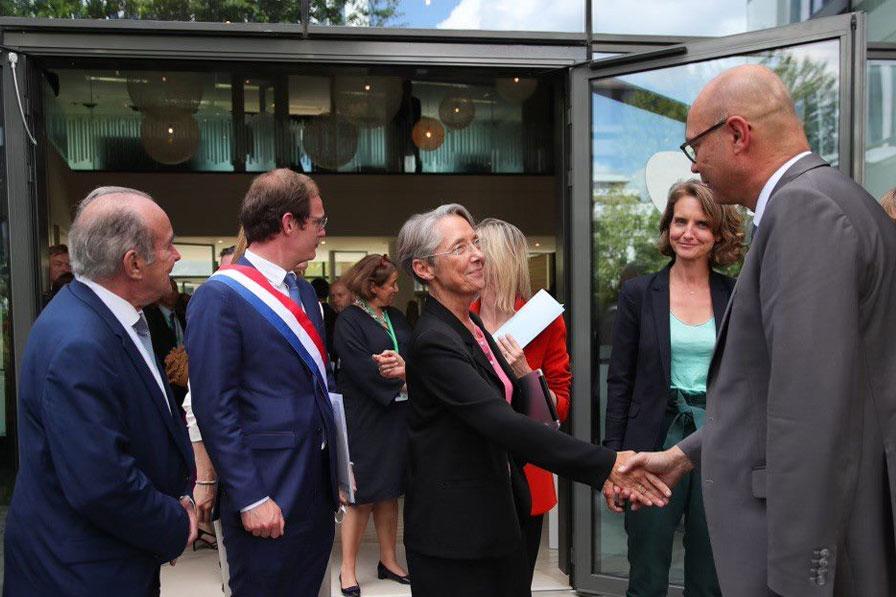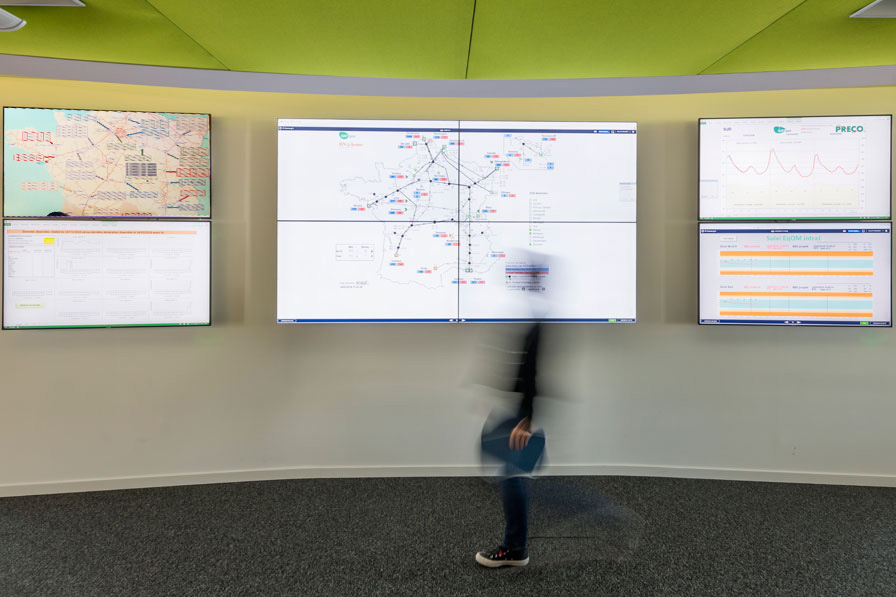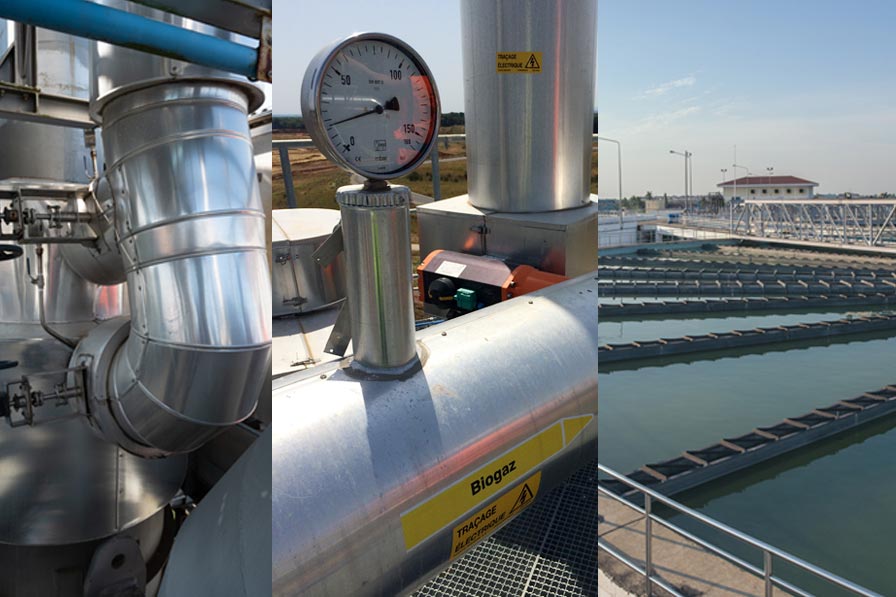GRTgaz welcomed the Prime Minister and the Minister for Energy Transition

Prime Minister Elisabeth Borne and Minister for Energy Transition Agnès Pannier-Runacher, flanked by their energy advisors, were welcomed by Thierry Trouvé, CEO of GRTgaz, and a delegation of regional elected officials on Thursday, 23 June 2022.
At this governmental visit, also attended by Laurent Hottiaux - Prefect of Hauts-de-Seine, Christine Lavarde - Senator of Hauts-de-Seine, Pierre Cazeneuve - MP for the 7th constituency of Hauts-de-Seine, Céline Calvez - MP for the 5th constituency of Hauts-de-Seine, Maud Bregeon - MP for the 13th constituency of Hauts-de-Seine, and Yves Revillon - Mayor of Bois-Colombes, Elisabeth Borne and Agnès Pannier-Runacher spoke about the energy situation to the press, who were invited for the occasion.
After discussing the drop in gas deliveries from Russia and the maintenance of the energy tariff shield until the end of 2022, Elisabeth Borne stated that "we are ensuring that our storage capacities are filled to the maximum, and aim to be close to 100% at the beginning of autumn”.
She also officialised the launch of a floating terminal in France, on which work is due to start in the autumn for commissioning in the summer of 2023: “we will be launching a new LNG terminal to increase our capacity to supply ourselves with gas that is not dependent on Russia”.
Lastly, she reiterated the need to develop alternative renewable energies in order to move towards a decarbonised energy mix, adding that “this could be biomethane”.
For her part, Agnès Pannier-Runacher returned to “the need to be extraordinarily agile in the context of the Ukrainian crisis”. The Minister referred to her desire to facilitate biomethane projects in order to have new capacities on French territory from as early as next year.
She also stressed the need for vital energy sobriety and announced a roadmap and a consultation process with companies, local authorities, social partners and players in the energy sector in order to reduce French consumption, with a target of -10% by the end of 2024.
"Beyond the technical imperatives, political decisions are needed to protect the French."Elisabeth Borne, Prime Minister
Speeches (french version)
This visit also was also the opportunity for members of the government to visit the national dispatching centre in order to broach the reality of gas flows in France and Europe and take part in a working meeting, attended by Thierry Trouvé and a delegation of players from the energy sector.

What is the function of a national dispatching centre?
The continuity of supply is ensured on a daily basis via a national dispatch service and four regional monitoring centres. These centres are responsible for managing gas flows, balancing the gas system, remotely operating the main components of the transmission network, monitoring the network, stations and delivery points, and inspecting gas quality, 24 hours a day, 7 days a week.

